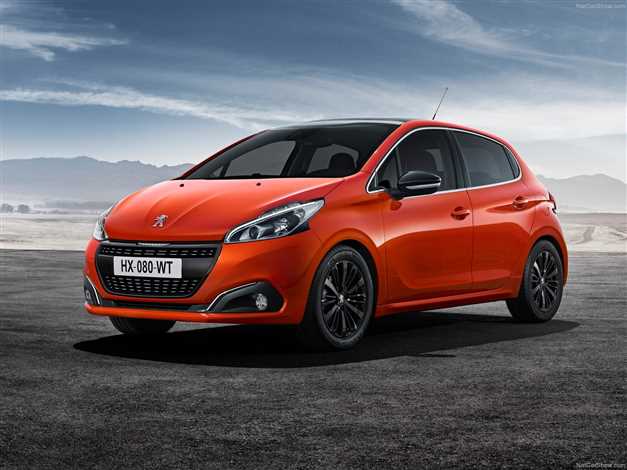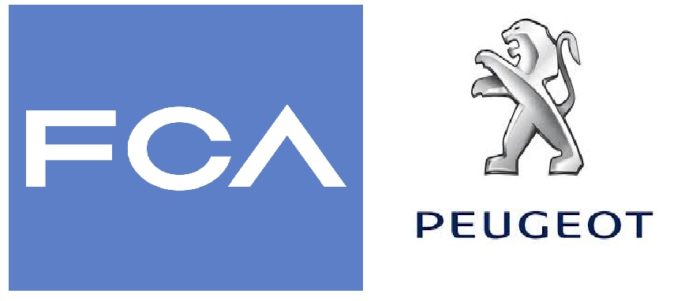Now Reading: European factories at danger in Peugeot-Fiat merger
-
01
European factories at danger in Peugeot-Fiat merger
European factories at danger in Peugeot-Fiat merger

Fiat Chrysler and Peugeot owner PSA’s vow not to shut down factories if they merge is probably to come under heavy strain as the combined group would have spare production ability of almost six million vehicles in a slowing automobile market.
The companies last week revealed strategies to create a $50 billion group that would compete with Hyundai, General Motors, Ford and Honda to become the world’s No.4 automaker, based on their combined 8.7 million vehicles sold in 2018.
The new car and truck making giant would have a possible manufacturing capacity of 14 million vehicles, forecasters LMC Automotive informed Reuters. But the industry has entered a slump and the European small car market in particular – where both PSA and Fiat Chrysler (FCA) are largely exposed – is under pressure.
“The utilization rate would be low at 58%, which would leave the group with nearly six million units of spare capacity worldwide,” LMC Automotive stated. “Europe is likely to bear the brunt of any potential plant closures.”
Labor unions and politicians have already voiced issues about job losses, and both France-based PSA and Italian-American FCA have ruled out factory shutdowns in an attempt to quell fears.
But a deadline to complete 2021 and 2025 emissions goals in Europe adds pressure on FCA to adopt PSA’s more effective engines, calling into question some of FCA’s engine plants in Europe – mostly in Italy, along with those in Poland – in general.
“The focus will be Europe, where sub-scale product lines, powertrains and future EV (electric vehicle) investments could be combined,” Bernstein Research analyst Max Warburton, stated in a recent note.
A combined PSA-FCA is going to have a market share of 22% in Europe, September registration data from auto industry association ACEA reveals, leapfrogging Volkswagen which, with a market share of 20%, has been the largest automaker in Europe.
Stay Informed With the Latest & Most Important News
Previous Post
Next Post
-
 01Polestar Boss Says It’s Time To Outrun BMW M And Mercedes-AMG
01Polestar Boss Says It’s Time To Outrun BMW M And Mercedes-AMG -
 02Spy Shots: 2027 Mitsubishi Pajero Spotted in Testing Ahead of Possible U.S. Return
02Spy Shots: 2027 Mitsubishi Pajero Spotted in Testing Ahead of Possible U.S. Return -
 032026 Toyota Hilux EV: A Powerful Truck with Silent Torque
032026 Toyota Hilux EV: A Powerful Truck with Silent Torque -
 04Spy Photos: VW ID. Polo GTI Goes Electric with 223 HP and 280 Miles of Range
04Spy Photos: VW ID. Polo GTI Goes Electric with 223 HP and 280 Miles of Range -
![2027 Mercedes-Benz S-Class Debuts with V8 Engine [Photo Gallery]](https://speedlux.com/wp-content/uploads/2026/01/2027-Mercedes-Benz-S-Class-33-155x125.jpg) 052027 Mercedes-Benz S-Class Debuts with V8 Engine [Photo Gallery]
052027 Mercedes-Benz S-Class Debuts with V8 Engine [Photo Gallery] -
 06The Controversial Ford Voodoo V8 That Was Killed Off Too Early
06The Controversial Ford Voodoo V8 That Was Killed Off Too Early -
 07Hyundai Palisade’s Breakout Year Shows How Quickly the Market Can Turn
07Hyundai Palisade’s Breakout Year Shows How Quickly the Market Can Turn



![2027 Mercedes-Benz S-Class Debuts with V8 Engine [Photo Gallery]](https://speedlux.com/wp-content/uploads/2026/01/2027-Mercedes-Benz-S-Class-33-700x394.jpg)










































